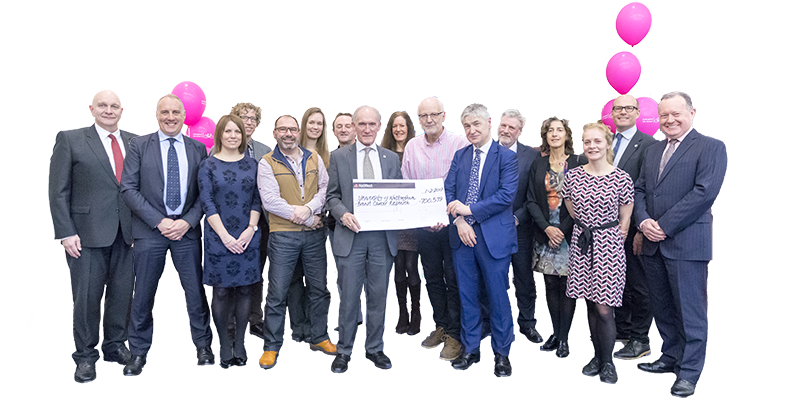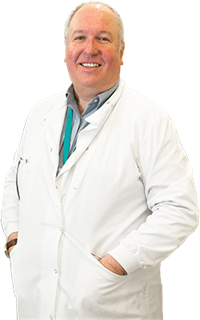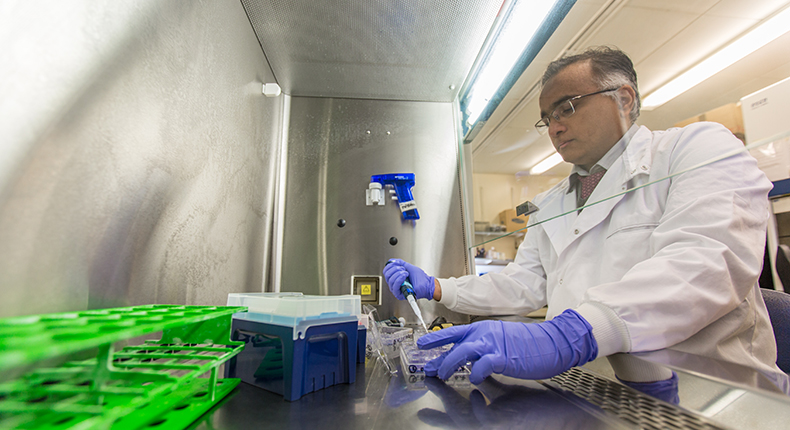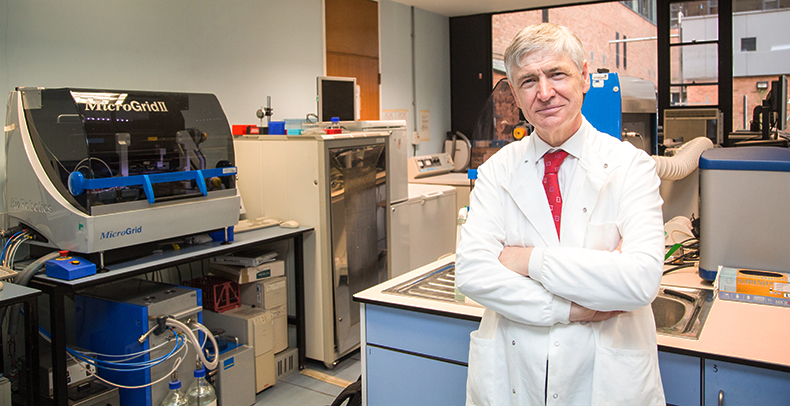
Beating breast cancer, together
Thanks to your support for our annual fundraising campaign, Life Cycle 6, we have raised an incredible £700,539 for our breast cancer research - our second highest Life Cycle total ever!
Your gifts are supporting vital research today
“When I think about all the amazing things people have done to support our work – organising bake sales, cycling over 1,400 miles, rallying family, friends and colleagues – I feel humbled” said Professor Stewart Martin. “To know that there is a community of people who believe in our research as much as we all do, is truly inspiring."
Professor Martin is one of our expert breast cancer researchers, leading a dedicated team focusing on stopping the spread of breast cancer around the body and improving conventional treatment. “Last summer, we published our research on a family of proteins called calpains” he explains. “We showed that these proteins play a key role in how breast cancer cells migrate and how women respond to treatment. By targeting them, we believe we can help improve the outcomes for women, including those with a poor prognosis. Money from Life Cycle 6 is enabling us to take this work to the next level over the next 12 months, using more samples to explore the effects calpain proteins have on cancer cells. Research is a long game but we are optimistic about our initial findings.”

You are helping develop new targeted treatments
“I see breast cancer patients in my clinic every week,” adds Professor Srinivasan Madhusudan, “there is always something from each that stays with you. My research is focused on helping women with Triple Negative Breast Cancer – the only type for which is there is currently no targeted treatment available. There really is no time to lose. We know that breast cancer cells are inefficient at repairing themselves when damaged, so we are developing new drugs which exploit this DNA deficiency to kill the cells.

"The Life Cycle 6 grant I received is helping to fund our testing programme. If we are successful, we will be able to offer women who currently have few options a life-saving new treatment with minimal side-effects.”
Hormone sensitive tumours are the most common type of breast cancer, accounting for between 70-80% of all cases. At our research centre in Derby, Professor John Robertson and team are progressing research into anti-hormone therapies. “I have treated women in Nottingham with breast cancer for the last 30 years. During this time, we have made significant contributions in developing new anti-hormone treatments for women with hormone responsive advanced breast cancer” he explains.
“In November, we published a study in the Lancet which will change the standard of care for patients. Your support will now help us progress additional biological studies to further understand which women benefit most from this particular approach.”
"If we are successful, we will be able to offer women who currently have few options a life-saving new treatment with minimal side-effects."
Professor Srinivasan Madhusudan
The world’s first early detection blood test is a step closer

For many women, spotting the disease before it starts to develop is critical. This is a major focus for Professor Robertson, who gave up 2 weeks of his holiday to cycle 1,400 miles across Britain as a member of our Life Cycle 6 endurance team to help raise funds.
“In 2015, using microarray protein technology, we showed that breast cancer autoantibodies could be detected in women in the early stages of breast cancer at all ages” said Professor Robertson.
“In 2016, we expanded the sample and benefitted from
researching colon cancer. The enhanced sensitivity confirmed our previous findings, which is extremely encouraging. Now we are undertaking detailed analysis and planning to use Life Cycle 6 funding to buy much-needed equipment for our laboratory. With your support, we are moving closer to dramatically changing how we diagnose and treat women with breast cancer. We are doing everything we can to help prevent the disease from developing in the future.
"Your generosity really is making a difference to the speed at which we can carry out this exciting area of research.”
Thank you
Thank you to everyone who took part in Life Cycle 6 and supported this life-changing breast cancer research. 100% of every gift you give goes direct to our researchers.
If you would like to raise funds for Nottingham’s breast cancer research, please contact our Community Fundraising Manager, Louise Shaw on 0115 7484809